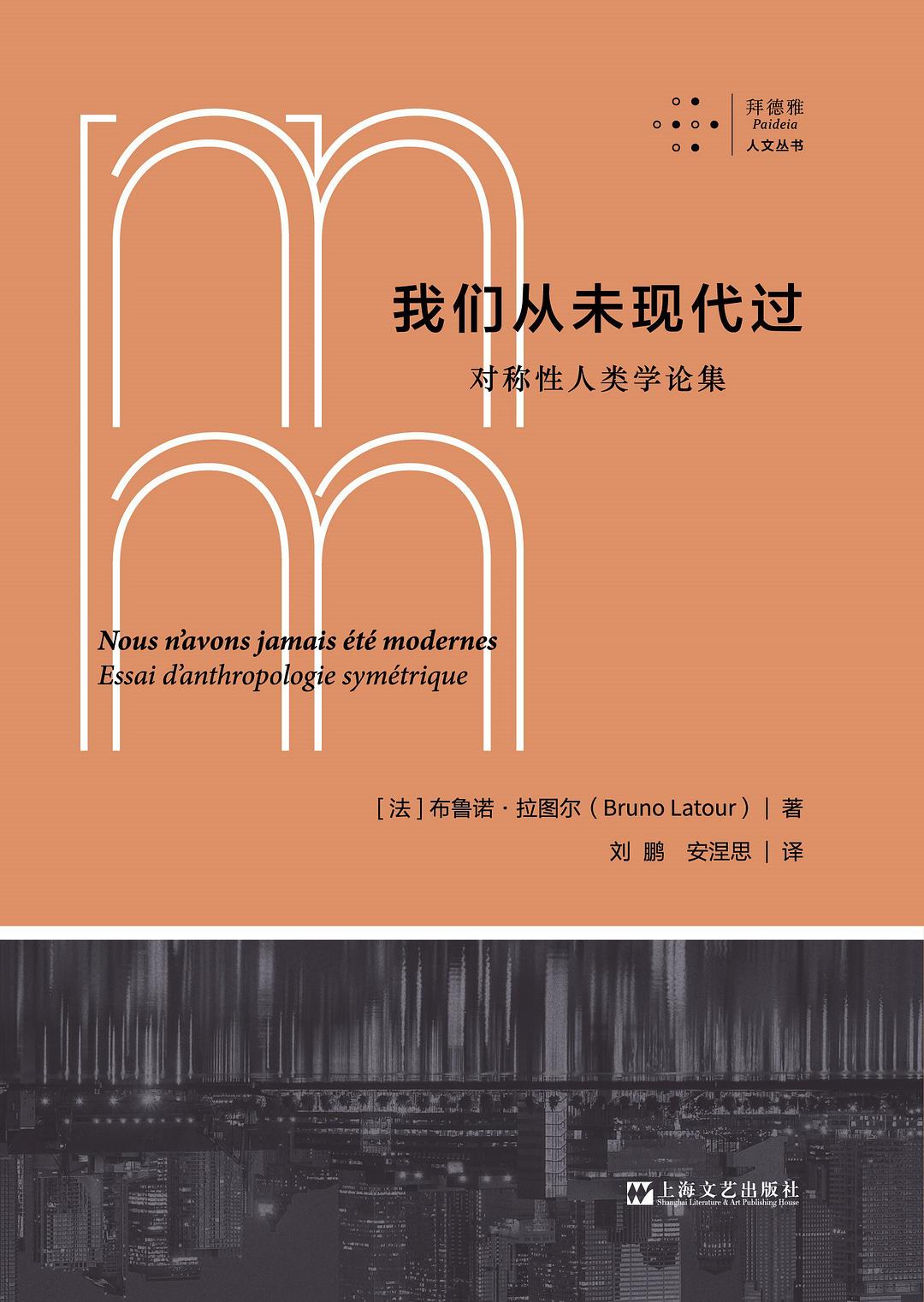1
/
of
1
We have never been modern
We have never been modern
Essays on the Anthropology of Symmetry
Bruno Latour Liu Peng and Annes 译Regular price
$21.99 USD
Regular price
$21.99 USD
Sale price
$21.99 USD
Unit price
/
per
Low stock
Couldn't load pickup availability
About Book
About Book
Nous n'avons jamais été modernes. Essai d'anthropologie symétrique
★ A must-read book in the fields of history of science, philosophy of science, and anthropology of science, revised and reprinted after 12 years★ We have never really been modern; modernity is nothing more than a belief★ Blurring the boundaries between science, humanities, and social sciences, and reshaping our spiritual landscape-Editor's Recommendation-
River pollution, frozen embryos, HIV, the ozone hole…are these strange “things” invading our world part of nature or culture? How should we understand them?
As modern people, we believe that the world has been irreversibly changed by the rise of science, a change that separates us from our primitive, pre-modern ancestors. However, what would the world be like if we let go of this obsession?
What does it mean to be modern? What does it mean to be a modern person? A book that cannot be ignored in the current debate about modernity, anti-modernity, and postmodernity. It is a profound reflection on the definition and construction of modernity itself and a new interpretation of science.
-Introduction-
This book offers an original intervention in the current debates about modernity, anti-modernity, and postmodernity. The author argues that these debates are all mired in the false binary oppositions founded by modernity (subject and object, nature and culture, human and non-human, etc.), which fragment time. Our "modern" society has never operated according to the grand divisions that underpin its systems of representation of the world: nature on the one hand, culture on the other, fundamentally opposed to each other. In fact, modern humans have never ceased to produce hybrids in their practice—things that are both natural and cultural. In this sense, Latour's scientific anthropology tells us that we have never truly been modern, and that modernity is largely a matter of faith.
Based on this, Latour ingeniously constructs a "non-modern" position distinct from postmodernism, building on his work on "Science," and developing a symmetrical anthropology. He strives to practically connect the categories of human and nonhuman, breaking down the divisions between nature and history and between premodern, modern, and postmodern. He also attempts to reconstruct what he calls "modern institutions" by constructing pseudo-objects. This book blurs the boundaries between science, the humanities, and the social sciences, advancing our understanding of all three, effectively reshaping our mental landscape.
-Expert Recommendation-
If you like an anti-dualist philosophical discussion, if you want to break down divisions like subject and object, mind and body, language and fact, then you will definitely like Latour… Latour’s work is by far the best at breaking down the divisions between manufacturing and discovery, between nature and history, and between pre-modern, modern and postmodern.
—Richard Rorty In the current debate about modernity, anti-modernity, and postmodernity, Latour undoubtedly occupies a very important and original position. His commitment to practically connecting the categories of human and nonhuman, combined with his brief assessments of thinkers such as Kant, Hegel, Bachelard, Habermas, Baudrillard, Lyotard, and Heidegger, has enriched and intensified the current debate.
—Andrew Pickering "This is a book about metaphysical and political ontology. Latour aims to break down philosophical categories like nature, power, and language. Insights abound, from his advocacy of plural naturalism (as opposed to multiculturalism) to his call for social theorists to acknowledge the historicity of objects. This is a fascinating book, a refreshing departure from the self-contained, servile work in the history and philosophy of science. It's a challenging read, but a rewarding one for those with a philosophical bent.
—Robert N. Proctor This book offers a vibrant, thoughtful, and comprehensive exploration of the various issues surrounding the contemporary era and the concept of "modernism." It focuses on three key interrelated areas: science and technology, politics and government, and linguistics and semiotics. Examining premodernists, postmodernists, antimodernists, and so-called modernists, Latour concludes that we have never truly been modern. As he argues, a modernism stripped of its many harmful qualities is the one worth pursuing.
--"choose"
Publication Date
Publication Date
2022-07-01
Publisher
Publisher
上海文艺出版社
Imprint
Imprint
Baideya
Pages
Pages
408
ISBN
ISBN
9787532183289
share

